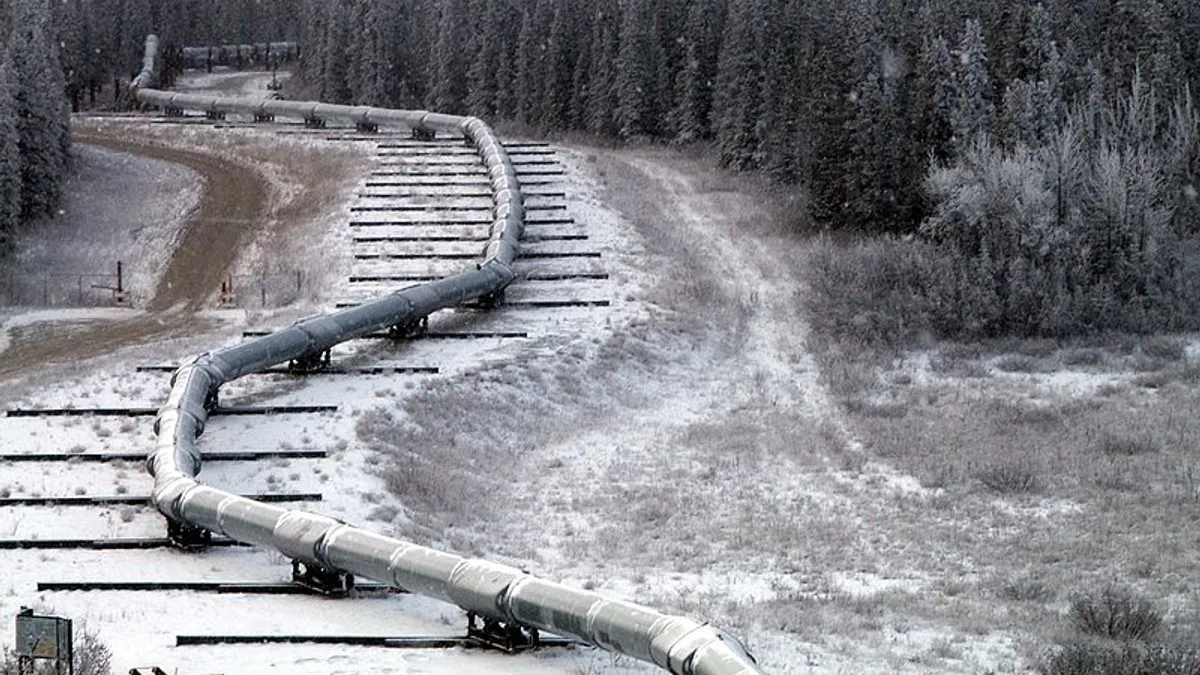Dive Brief:
-
The Federal Energy Regulatory Commission on Monday rejected requests to review its decision allowing construction of the 99-mile Northern Access Pipeline, overruling a New York decision to deny water quality permits to the project.
-
New York waived its authority to award permits to the pipeline by not issuing a decision within one year, FERC ruled, denying an appeal from the state and environmental groups. Commissioner Richard Glick dissented on the 4-1 decision.
-
The decision comes after FERC in July declined to overturn a similar New York decision to deny permits for the 124-mile Constitution Pipeline, which was planned to deliver gas from Pennsylvania into the state.
Dive Insight:
FERC’s decisions on the New York pipeline cases could help set a more solid precedent for how the commission deals with state challenges to its permitting authority.
Last year, FERC overruled a decision by the New York Department of Environmental Conservation (DEC) to deny water permits for the project under the Clean Water Act.
The DEC received the application for permits on March 2, 2016. Because it did not issue a decision within a year of receipt, FERC says the agency gave up its authority over the project.
DEC argued that it and the pipeline developers had mutually agreed to extend the deadline for that permitting process to April 8 of last year, the day after the DEC ultimately denied the water permits. But FERC ruled that the agreement, signed Jan. 20, 2017, had no impact on the legal timeframe for New York’s decision.
“The execution of an agreement between an applicant and a certifying agency does not entail a ‘receipt’ by the agency,” FERC wrote. “Only if an applicant withdraws and refiles an application, no matter how formulaic or perfunctory the process, does the certifying agency’s new ‘receipt’ of the application restart the one-year waiver period.”
Those filing details are not in play for the Constitution Pipeline, which was denied water quality permits within the one-year timeframe. FERC did not move to overrule that decision, but in a January ruling raised larger questions about whether state decisions to block critical infrastructure are in the public interest.
"We continue to be concerned, however, that states and project sponsors that engage in repeated withdrawal and refiling of applications for water quality certifications are acting, in many cases, contrary to the public interest and to the spirit of the Clean Water Act by failing to provide reasonably expeditious state decisions," the commission noted.
The court battles over pipelines in New York have evolved into a proxy war for the larger struggle over gas infrastructure in the Northeast U.S, where industry groups say more pipelines are needed but projects face stiff opposition from local residents, environmentalists and state governments like the one in Albany.
Last year, Energy Secretary Rick Perry said the Trump administration would consider intervening if New York continues to block projects, a message he reiterated at the end of June, warning of a "reckoning" for state governments opposed to new fossil fuel infrastructure.
Correction: This post has been updated to reflect that FERC denied a rehearing request for the Constitution Pipeline in July.













